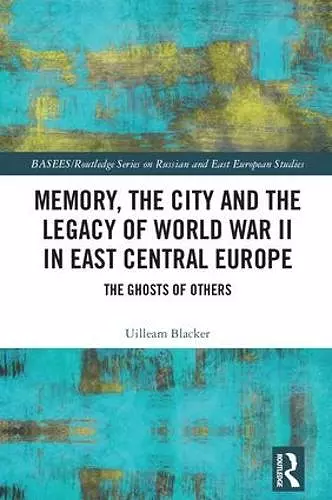Memory, the City and the Legacy of World War II in East Central Europe
The Ghosts of Others
Format:Hardback
Publisher:Taylor & Francis Ltd
Published:16th Jul '19
Currently unavailable, and unfortunately no date known when it will be back
This hardback is available in another edition too:
- Paperback£41.99(9780367785628)

After the Second World War, millions of people across Eastern Europe, displaced as a result of wartime destruction, deportations and redrawing of state boundaries, found themselves living in cities that were filled with the traces of the foreign cultures of the former inhabitants. In the immediate post-war period these traces were not acknowledged, the new inhabitants going along with official policies of oblivion, the national narratives of new post-war regimes, and the memorializing of the victors. In time, however, and increasingly over recent decades, the former "other pasts" have been embraced and taken on board as part of local cultural memory. This book explores this interesting and increasingly important phenomenon. It examines official ideologies, popular memory, literature, film, memorialization and tourism to show how other pasts are being incorporated into local cultural memory. It relates these developments to cultural theory and argues that the relationship between urban space, cultural memory and identity in Eastern Europe is increasingly becoming a question not only of cultural politics, but also of consumption and choice, alongside a tendency towards the cosmopolitanization of memory.
"He examines "the paradoxical combination of the trauma of loss and the desire for belonging” (2) and how place-based memories have been constructed after war, destruction, mass murder, and displacement. Following the introduction's theoretical analysis, six chapters discuss urban ruination, memory loss and martyrdom, representations in popular literature, and the importance of photographic images in remembering lost urban communities. The conclusion summarizes these diverse strategies of “memory culture” and how they have been crucial in creating urban cultures in East-Central Europe."
--B. Osborne, emeritus, Queen's University at Kingston, CHOICE, March 2020 Vol. 57 No. 7
Summing Up: Recommended. General readers, upper-division undergraduates through faculty, and professionals.
ISBN: 9781138914360
Dimensions: unknown
Weight: 453g
242 pages